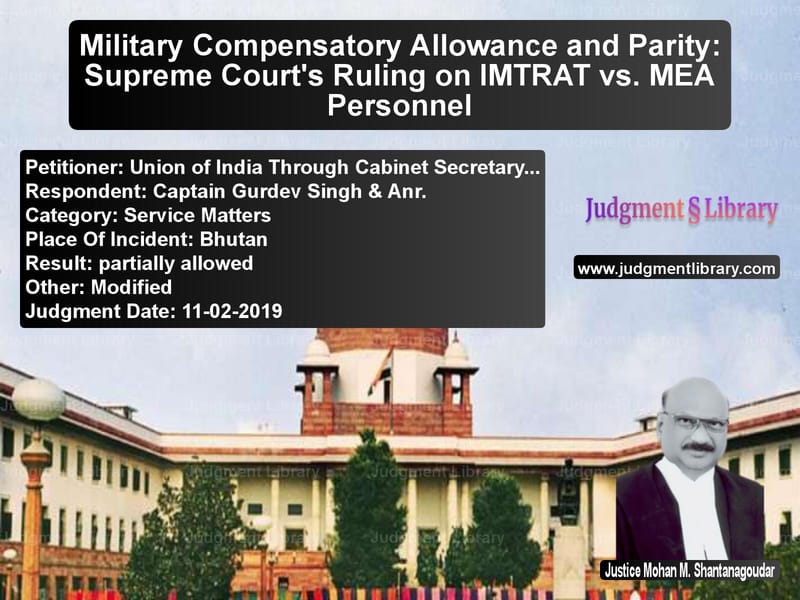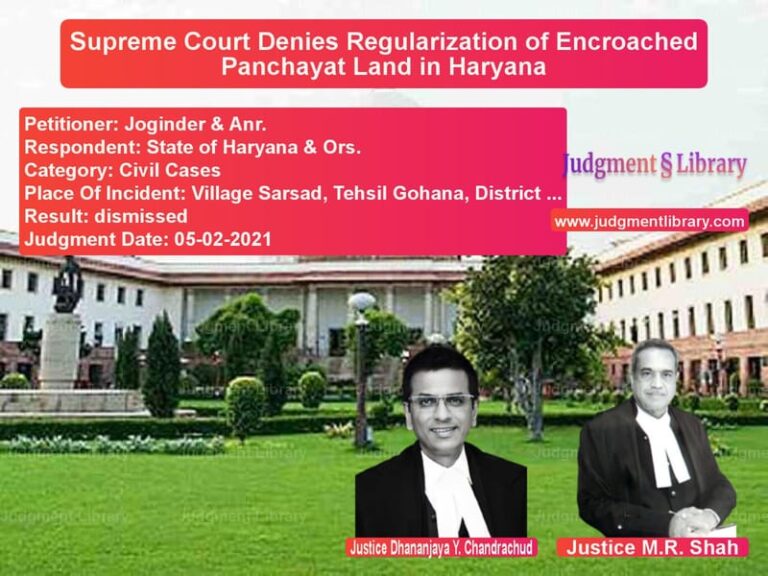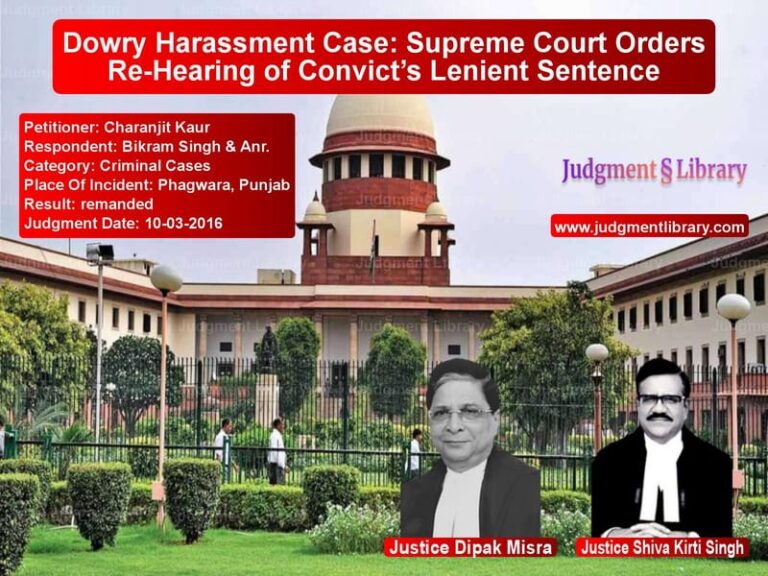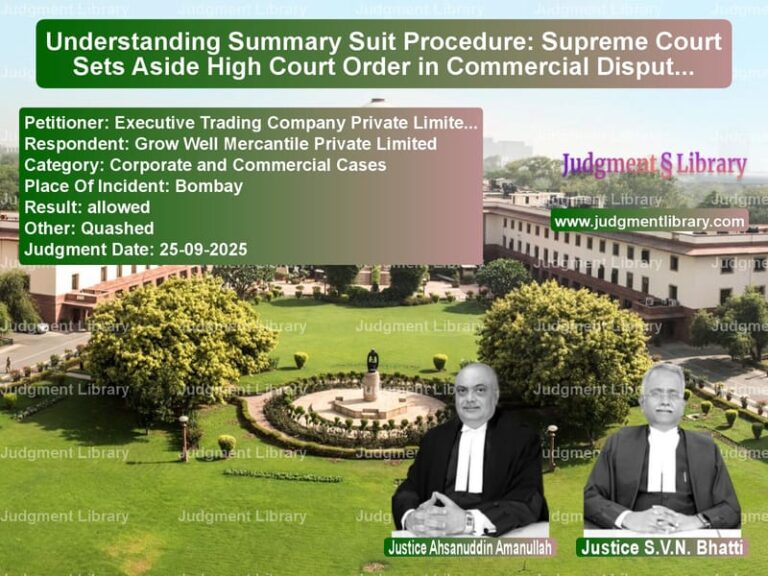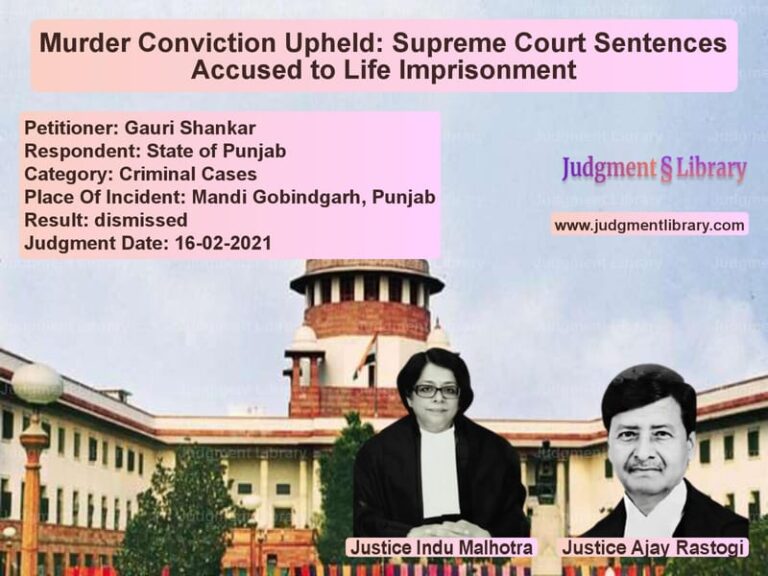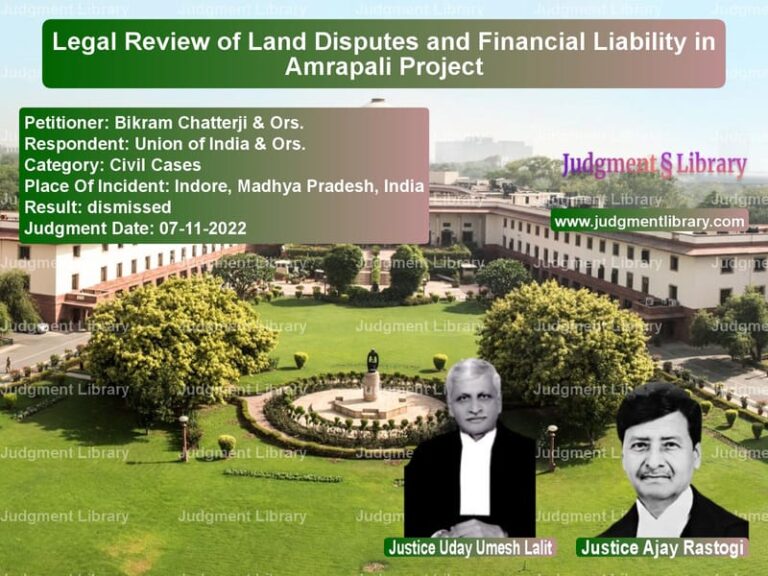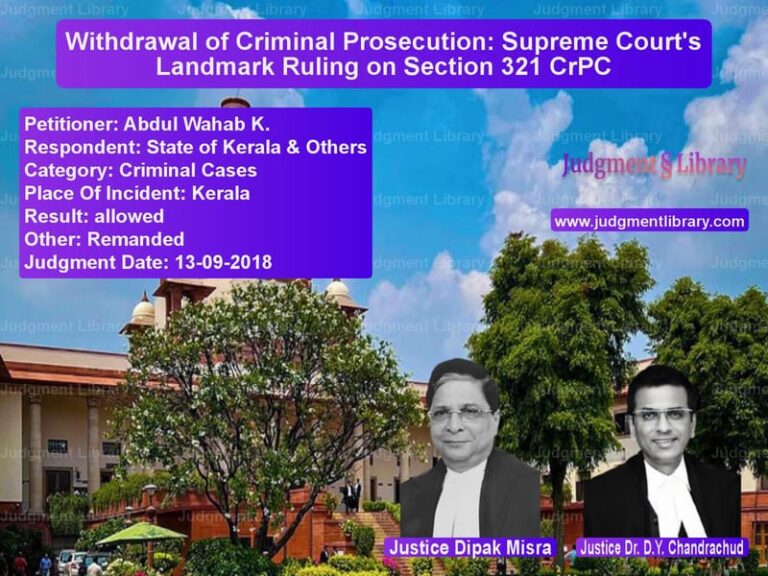Military Compensatory Allowance and Parity: Supreme Court’s Ruling on IMTRAT vs. MEA Personnel
The case of Union of India Through Cabinet Secretary & Ors. vs. Captain Gurdev Singh & Anr. revolves around the issue of compensatory allowances granted to military personnel of the Indian Military Training Team (IMTRAT) posted in Bhutan. The dispute arose from the disparity between the Bhutan Compensatory Allowance (BCA) paid to IMTRAT personnel and the Foreign Allowance (FA) given to Indian diplomatic personnel under the Ministry of External Affairs (MEA). The Supreme Court of India addressed whether IMTRAT personnel were entitled to the same allowance as their civilian counterparts in the Indian diplomatic services.
The judgment, delivered by Mohan M. Shantanagoudar, examined whether the High Court of Delhi had overstepped its authority in granting parity between the two categories of allowances. The Supreme Court ruled in favor of the Union of India, holding that the High Court had erroneously equated the two allowances.
Background of the Case
IMTRAT personnel were posted in Bhutan to train the Bhutanese Army and were granted the Bhutan Compensatory Allowance (BCA). The dispute arose because:
- IMTRAT personnel’s BCA had a deduction (depression) of 22.5% for officers and 10% for personnel below officer rank (PBORs) due to free mess, ration, and accommodation.
- Civilian personnel in Bhutan, such as those working in the Border Roads Organisation’s Project Dantak, Tata Hydroelectric Project, and Central Water Commission, received the BCA without any deduction.
- MEA personnel received a Foreign Allowance (FA) under the Indian Foreign Service (IFS) Rules, 1981.
The IMTRAT personnel argued that their allowance had historically been at par with the FA of MEA personnel until 1997, after which the FA continued to be revised while their BCA remained largely unchanged.
Petitioner’s Arguments
The Union of India, represented by the Cabinet Secretary and various ministries, put forth the following arguments:
- The High Court’s order had gone beyond the scope of the original order, which only mandated retrospective implementation of the removal of the depression on BCA.
- The term “civilian counterparts” used in previous recommendations referred to non-military personnel receiving BCA, not MEA personnel receiving FA.
- The duties and conditions of IMTRAT and MEA personnel were distinct, governed by different rules and pay structures.
- FA and BCA were structured differently; FA was linked to the United Nations Retail Price Index (UNRPI), while BCA was revised independently.
- Maintaining parity between IMTRAT and MEA personnel could have significant financial and security implications.
Respondent’s Arguments
Captain Gurdev Singh and the other respondent argued:
- IMTRAT personnel should be treated on par with MEA personnel as both worked under the direct control of the Indian government.
- The purpose of both allowances was the same: to offset the high cost of living in Bhutan.
- Parity between the two allowances existed for 25 years and was arbitrarily discontinued.
- The government had previously conceded that IMTRAT personnel were comparable to MEA personnel by linking the BCA to UN indices after 2002.
- Other military teams stationed abroad received allowances at par with their diplomatic counterparts.
Supreme Court’s Observations
The Supreme Court analyzed the arguments and made the following key observations:
“The entire scheme of compensatory allowances reveals that IMTRAT and MEA personnel are governed by different service conditions, and the allowances granted to them are distinct in structure and purpose.”
The Court found that the High Court had made an incorrect assumption that the term “civilian counterparts” referred to MEA personnel when it actually referred to other civilian workers receiving BCA.
“It was not open to the High Court to expand the scope of the original order by granting a relief that was not explicitly included.”
The Court also emphasized that policy decisions regarding military and diplomatic compensatory allowances must be left to the executive branch and not judicially imposed.
Final Judgment
The Supreme Court ruled:
- The High Court’s direction to grant parity between IMTRAT’s BCA and MEA’s FA was beyond the scope of the case.
- IMTRAT personnel were distinct from MEA personnel and could not claim automatic parity.
- The removal of the depression on BCA had already been implemented retrospectively from December 1, 1999, satisfying the original claim.
- The government was directed to immediately remove the remaining depression of 6% for officers and 4% for PBORs.
Conclusion
The judgment reaffirmed the principle that courts should not interfere in policy decisions unless there is a clear case of arbitrariness or violation of fundamental rights. The ruling clarified that while military personnel deserve fair compensation, their allowances should be structured according to their distinct service conditions rather than being equated with those of diplomatic personnel.
Petitioner Name: Union of India Through Cabinet Secretary & Ors..Respondent Name: Captain Gurdev Singh & Anr..Judgment By: Justice Mohan M. Shantanagoudar.Place Of Incident: Bhutan.Judgment Date: 11-02-2019.
Don’t miss out on the full details! Download the complete judgment in PDF format below and gain valuable insights instantly!
Download Judgment: Union of India Throu vs Captain Gurdev Singh Supreme Court of India Judgment Dated 11-02-2019.pdf
Direct Downlaod Judgment: Direct downlaod this Judgment
See all petitions in Pension and Gratuity
See all petitions in Public Sector Employees
See all petitions in Judgment by Mohan M. Shantanagoudar
See all petitions in partially allowed
See all petitions in Modified
See all petitions in supreme court of India judgments February 2019
See all petitions in 2019 judgments
See all posts in Service Matters Category
See all allowed petitions in Service Matters Category
See all Dismissed petitions in Service Matters Category
See all partially allowed petitions in Service Matters Category

